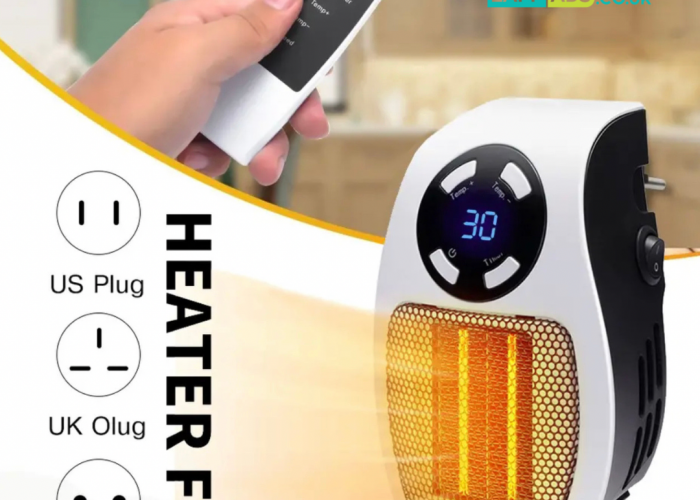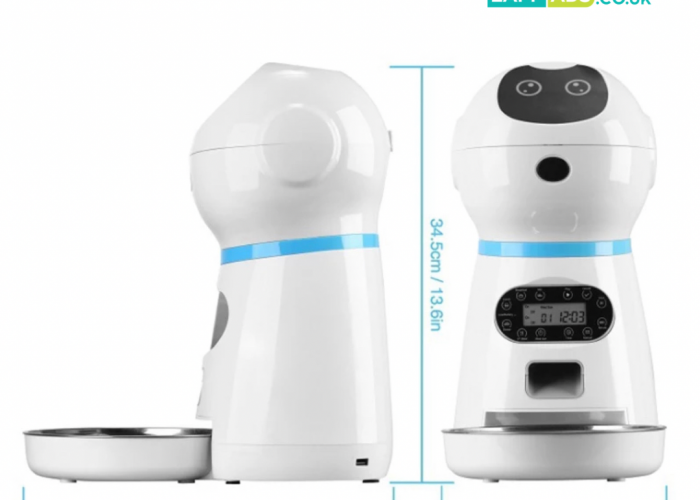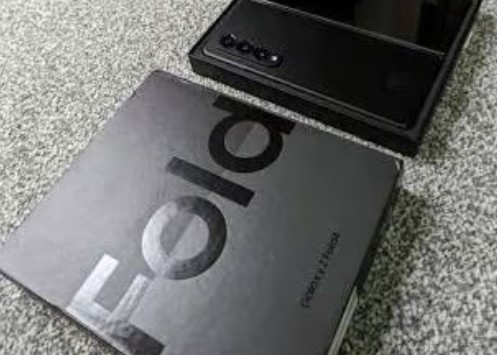

Scrie-ne ce problema ai în legătură cu acest anunț!
Comment
The Future is Now: Unpacking the Power and Intelligence of the LiFePO4 48V 300Ah 15kWh Battery Pack
Electronics and Appliances
0
0
Nou
Individual
Nu
Details
LiFePO4 48V 300Ah 15Kwh Battery Pack 6000+ Cycles Bluetooth RS485 CAN BMS 51.2V 100Ah 120Ah 150Ah 200Ah Lithium Battery EU STOCK
👍👍Buy now: https://youtu.be/QHhhddj2q0U
🔥🔥 DISCOUNT: 42% 🔥🔥
The energy storage landscape is undergoing a seismic shift, and at the heart of this revolution lies Lithium Iron Phosphate (LiFePO4) battery technology. Offering an unparalleled combination of safety, longevity, and performance, LiFePO4 batteries are rapidly becoming the go-to solution for a myriad of applications. Today, we delve deep into a true powerhouse: the LiFePO4 48V 300Ah 15kWh battery pack, a unit that not only promises substantial energy reserves but also boasts intelligent features like 6000+ cycle life, Bluetooth connectivity, RS485 and CAN communication, and a sophisticated Battery Management System (BMS). Furthermore, with EU stock availability and a range of capacities including popular 51.2V 100Ah, 120Ah, 150Ah, and 200Ah options, accessing this cutting-edge technology has never been easier for European consumers.
Why LiFePO4? The Undeniable Chemical Advantage
Before we dissect the impressive specifications of the 15kWh pack, it's crucial to understand why LiFePO4 chemistry stands out. Unlike its lithium-ion cousins like NMC (Nickel Manganese Cobalt) or LCO (Lithium Cobalt Oxide), LiFePO4 offers:
Superior Safety: LiFePO4 batteries have a much higher thermal runaway threshold (around 270°C) compared to other lithium chemistries. This makes them significantly less prone to overheating and combustion, a critical factor for residential and commercial installations.
Exceptional Longevity: This is where LiFePO4 truly shines. These batteries can endure a significantly higher number of charge-discharge cycles, translating to a longer operational lifespan and better return on investment.
Enhanced Thermal Stability: They perform consistently across a wider temperature range.
Environmental Friendliness: LiFePO4 chemistry does not contain cobalt, a material often associated with unethical mining practices and environmental concerns. They are also more easily recyclable.
High Discharge Current Capability: They can deliver high power outputs, making them suitable for demanding applications.
The 15kWh Behemoth: Unpacking 48V 300Ah
A 15kWh (kilowatt-hour) energy capacity is substantial. To put it into perspective, an average European household consumes roughly 8-10 kWh per day. This means a 15kWh battery pack can:
Power essential home appliances during extended power outages.
Significantly reduce reliance on the grid when paired with a solar panel system, storing excess solar energy generated during the day for use at night or on cloudy days.
Provide ample power for off-grid homes, cabins, or large recreational vehicles (RVs) and marine vessels.
The 48V (nominal voltage), often specifically 51.2V for a 16-cell LiFePO4 configuration (16S), is a common and efficient voltage for many modern inverters and solar charge controllers. It strikes a balance between safety (lower voltage than high-voltage systems) and efficiency (lower current and thus thinner, less expensive cabling compared to 12V or 24V systems for the same power output). The 300Ah (ampere-hour) rating indicates the battery's capacity to deliver a certain current over a period – in this case, it can theoretically deliver 300 amps for one hour, or 30 amps for 10 hours, before being fully discharged.
The Longevity King: 6000+ Cycles and What It Means for You
One of the most compelling features of high-quality LiFePO4 batteries is their incredible cycle life, often quoted at 6000+ cycles. A "cycle" refers to one full charge and discharge. To understand the significance:
If you cycle the battery once a day (e.g., in a solar self-consumption scenario), 6000 cycles translates to over 16 years of service life (6000 days / 365 days/year ≈ 16.4 years).
This is often rated at a specific Depth of Discharge (DoD), for instance, 80% DoD. This means the battery can be discharged to 20% of its capacity and recharged 6000 times while retaining a significant portion of its original capacity (typically 80%).
Compared to traditional lead-acid batteries (which might offer a few hundred to a thousand cycles at much shallower DoDs) or even some other lithium-ion chemistries (1000-2000 cycles), LiFePO4 offers a vastly superior lifespan, making the higher initial investment worthwhile in the long run due to fewer replacements.
Intelligent Energy: Bluetooth, RS485, and CAN Communication
Modern energy storage is not just about raw power; it's about smart management and integration. This is where advanced communication protocols come into play:
Bluetooth Connectivity: This feature provides users with convenient, wireless access to real-time battery data via a smartphone app. You can typically monitor:
State of Charge (SoC) – how full the battery is.
State of Health (SoH) – an indication of the battery's remaining lifespan.
Individual cell voltages and temperatures – crucial for diagnostics.
Current (charge/discharge rates).
Any fault codes or alarms. This ease of access empowers users to understand their energy system better and identify potential issues early.
RS485 and CAN Bus: These are robust, industry-standard serial communication protocols essential for seamless integration with other system components like:
Inverters: Allowing the battery and inverter to communicate optimally for efficient power conversion and to prevent over-discharge or overcharge.
Solar Charge Controllers: Ensuring the battery is charged correctly from solar panels.
Energy Management Systems (EMS): Enabling sophisticated control strategies, data logging for performance analysis, and remote monitoring and control in larger systems. RS485 is known for its resilience over longer distances, while CAN (Controller Area Network) is widely used in automotive and industrial applications for its reliability and real-time capabilities. Having both provides flexibility for various integration scenarios.
The Unsung Guardian: The Advanced Battery Management System (BMS)
The Battery Management System (BMS) is the brain of the battery pack. It's a critical electronic system that ensures the safety, longevity, and optimal performance of the individual lithium cells within the pack. A high-quality BMS in a 48V 300Ah LiFePO4 pack will typically provide:
Overcharge Protection: Prevents cell voltage from exceeding safe limits during charging.
Over-Discharge Protection: Prevents cell voltage from dropping too low, which can cause irreversible damage.
Over-Current Protection: Protects against excessive charge or discharge currents.
Short-Circuit Protection: Disconnects the battery in the event of a short circuit.
Temperature Monitoring (High and Low): Prevents charging or discharging outside safe temperature ranges, which is crucial for LiFePO4 performance and safety (e.g., preventing charging below 0°C without cell heating).
Cell Balancing: Ensures all individual cells within the pack are maintained at similar voltage levels, maximizing usable capacity and extending overall pack life. Active or passive balancing mechanisms are employed.
State of Charge (SoC) and State of Health (SoH) Estimation: Provides accurate readings to the user and connected systems.
Without a sophisticated BMS, even the best LiFePO4 cells can be quickly damaged or pose safety risks.
Versatility in Power: 51.2V Options (100Ah, 120Ah, 150Ah, 200Ah)
While the 15kWh (48V/51.2V 300Ah) pack is ideal for high-energy demands, the same core LiFePO4 technology, BMS intelligence, and communication features are often available in a range of capacities. Common 51.2V configurations include:
100Ah (approx. 5.12kWh): Suitable for smaller residential backup, RVs, or moderate solar storage.
120Ah (approx. 6.14kWh): A step up for increased backup duration or energy needs.
150Ah (approx. 7.68kWh): Balancing capacity and footprint for many homes.
200Ah (approx. 10.24kWh): A popular choice for substantial residential solar storage and off-grid applications.
This scalability allows users to choose a battery pack that precisely matches their energy requirements and budget, all while benefiting from the inherent advantages of advanced LiFePO4 technology.
The EU Stock Advantage: Powering Europe Efficiently
The availability of these advanced battery packs directly from EU stock is a significant boon for European customers. This means:
Faster Shipping: Reduced lead times compared to ordering from overseas.
Lower Costs: Potentially lower overall costs due to reduced international shipping fees and import duties/taxes (depending on specific EU regulations and supplier arrangements).
Simplified Logistics: Easier customs clearance and local delivery.
Improved Customer Support and Warranty Claims: Dealing with local or regional distributors often leads to quicker and more efficient after-sales service and warranty processing.
Contribution to Regional Energy Goals: Supporting the EU's push for energy independence and green technology adoption.
Where Does This Powerhouse Shine? Key Applications
The LiFePO4 48V 300Ah 15kWh battery pack, with its robust features, is exceptionally versatile:
Residential Solar Energy Storage: Maximize self-consumption of solar power, reduce electricity bills, and gain energy independence.
Off-Grid Systems: Provide reliable, long-lasting power for homes, farms, or remote facilities not connected to the utility grid.
Emergency Backup Power (UPS): Ensure uninterrupted power supply for critical loads in homes and businesses during grid outages.
Recreational Vehicles (RVs) and Marine Applications: Power all onboard appliances and systems for extended trips, offering a silent and emission-free alternative to generators.
Commercial and Industrial Applications: Suitable for peak shaving, demand response programs, and powering remote equipment.
Telecommunication Base Stations: Provide reliable backup power in remote or unstable grid locations.
Making the Right Choice: Considerations for Your Investment
When selecting a LiFePO4 battery pack, especially a significant investment like a 15kWh unit, consider:
True Usable Capacity: Understand the rated DoD to determine the actual energy you can expect.
BMS Features and Protections: Ensure it has comprehensive safety and management functions.
Communication Protocols: Verify compatibility with your existing or planned inverter and monitoring systems.
Cycle Life and Warranty: Look for transparent specifications and a solid warranty.
Supplier Reputation and Support: Choose established suppliers with good track records.
Certifications: Check for relevant safety and quality certifications (e.g., CE, UN38.3, IEC).
Conclusion: Embrace the Future of Energy Storage
The LiFePO4 48V 300Ah 15kWh battery pack, complete with 6000+ cycles, Bluetooth, RS485/CAN capabilities, and an advanced BMS, represents a pinnacle in current energy storage technology. Its combination of high capacity, exceptional lifespan, inherent safety, and intelligent features makes it a compelling choice for anyone serious about reliable, long-term energy solutions. With the added benefit of EU stock availability for these and other capacities like the 51.2V 100Ah to 200Ah range, the transition to a cleaner, more resilient energy future is more accessible than ever. This isn't just a battery; it's an investment in energy independence, sustainability, and peace of mind for years to come.
#battery #lithium_battery #lifepo4 #solar_battery #power_station #12v #24v #48v #home #car #power_supply #solar_generator #camping #lithium_battery #solar_battery #power_station #12v #24v #48v #home #car #power_supply #solar_generator #camping




